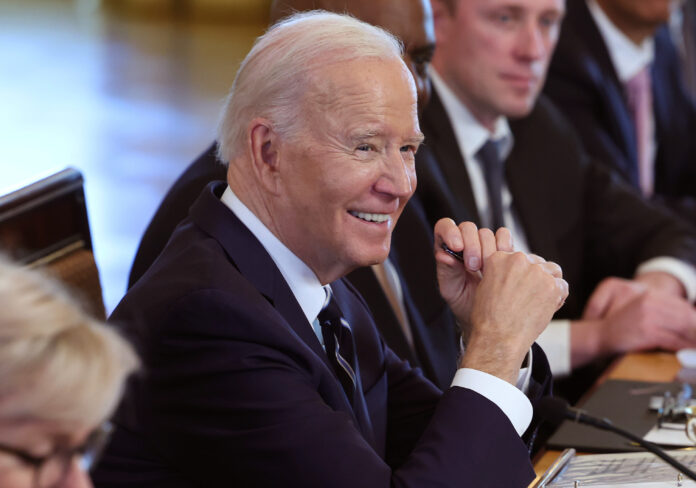Student loan borrowers could save more than $1 billion under President Joe Biden’s new plan to slash college “junk fees,” his administration announced Friday.
The new policy reforms would keep students and borrowers from paying what the White House calls “unnecessary” fees while improving the college and loan repayment process.
While Biden announced the series of actions as priorities for the Department of Education moving forward, he will need congressional approval to get the changes enacted.
Many hidden fees exist when navigating college and student debt, and they can quickly make student loan payments even more unmanageable. Some include unseen costs for unused meal account funds or even payments for using a college-sponsored credit card or bank account.
Kevin Dietsch/Getty Images
“Students aren’t always provided clear and upfront opportunities to avoid fees for services they do not want,” the White House said in a statement. “Obscured costs and misleading practices aren’t just frustrating—they cost millions of students and borrowers money.”
One of the biggest added costs facing borrowers is a loan origination fee, which can be anywhere from 1 percent for undergraduate loans to 4 percent for graduate and parent debts. That percentage might sound small at first but can soon add hundreds or even thousands of dollars to your overall payment.
“Many borrowers have balances greater than what they originally borrowed, despite making years of payments toward their loans,” attorney Michael Lux, the founder of the Student Loan Sherpa, told Newsweek. “In many cases, these loan origination fees are a big part of the problem. Getting rid of them should help make student debt slightly more manageable for students and their parents.”
To curb the extra cost, Biden’s administration is getting rid of the student loan origination fee. The move is predicted to affect 7 million Americans.
“These fees are a relic of an era when the government compensated private lenders to issue these loans,” the White House said. “Today, this fee is nothing more than a tax imposed on students by the government, costing consumers more than $1 billion annually.”
The fees were previously added to loan balances, making the borrowers liable for interest until the debt is paid off. For a typical teacher or nurse who took out federal loans, the extra charge can make up $1,000 in the long run. Meanwhile, parent PLUS borrowers would have to dish out an extra $2,800 or more due to the additional fee.
That’s not the only change that could be in store, though.
The Department of Education will also be updating its rules to make sure all college banking products that enable students access to their financial aid do not include “harmful fees.”
The Consumer Financial Protection Bureau found that banks imposed millions in high or unusual fees on more than 650,000 student account holders with college banking accounts. Those at historically black colleges and universities, for-profit schools and Hispanic-servicing institutions saw a significant amount of higher-than-average fees.
To combat this, the Department of Education will prohibit these college banking products from charging any insufficient funds or maintenance and closure fees.
“It’s a step in the right direction,” Alex Beene, financial literacy instructor for the state of Tennessee, told Newsweek. “This issue has been a significant one for a while, and while a small fee here or there for a financial product attached to a student-related loan may not seem steep during its initial invoice, it can add up over time as more fees are incurred and the debt accumulated comes due. The hope with these actions is it will lower the financial burden both in the front and back ends of loans being provided.”
Students also would not see any automatic charges for textbooks, and they would have to authorize all charges on their tuition bills for course materials.
“These changes, if proposed and finalized, would provide students with real choice and the ability to use the best textbooks at the most affordable price,” the White House said.
Another change would be in how colleges can use students’ leftover meal plan dollars. Instead of allowing colleges to use the money, they’d potentially have to send it back to students once the new rules are in place.
Additionally, colleges would be required to provide detailed information about the costs students and their families will pay out of pocket before students enroll and accept financial aid. Schools would also be prohibited from withholding students’ transcripts until they pay their full account balances.
Uncommon Knowledge
Newsweek is committed to challenging conventional wisdom and finding connections in the search for common ground.
Newsweek is committed to challenging conventional wisdom and finding connections in the search for common ground.


